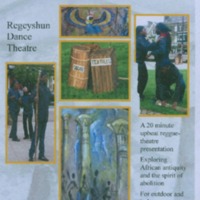
Sugar Beat Skank
Sugar Beat Skank was a reggae-theatre performance presented by Regeyshun Dance and commissioned by the Leeds Bicentenary Transformation Project. It explored 'African antiquity and the spirit of abolition', and gave voice to narratives linking the histories and cultures of Africa and Yorkshire. Sugar Beat Skank was performed at outdoor and indoor events across Yorkshire, including Ilkley Literature Festival in 2007.
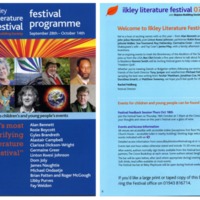
Ilkley Literature Festival, 2007
A number of events to mark the bicentenary of the Abolition Act of 1807 took place as part of Ilkley Literature Festival in 2007. Authors Caryl Phillips and Ben Okri discussed their work, and writers from the Peepal Tree Press Freedom Project premiered their poetry. 2007 Poet in Residence Rommi Smith invited festival goers to help create a unique literary 'Freedom Quilt', and gave a multi-media performance drawing on her recent visit to the Gambia. Street theatre was provided by performances of Sugar Beat Skank by Regeyshun Dance and the Leeds Bi-centenary Transformation Project. Members of the Leeds Diasporian Stories Research Group shared new material uncovered in the course of their research into the links between Yorkshire and the Atlantic trading world, and actor Joe Williams performed and answered questions as the African abolitionist Olaudah Equiano.
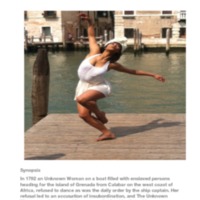
The Woman Who Refused to Dance
In Autumn 2007, the opera 'The Woman Who Refused To Dance' by composer and conductor Shirley J Thompson was performed at Westminster Palace, Houses of Parliament. The piece was based on a 1792 print by Isaac Cruickshank - entitled 'The abolition of the slave trade, or the inhumanity of dealers in human flesh exemplified in the cruel treatment of a young negro girl of 15 for her virgin modesty' - depicting a woman who refused to dance on board a slave ship, and who was hung from one leg as punishment. The opera has recently been re-premiered to mark the 210th anniversary of the abolition of the transatlantic slave trade.
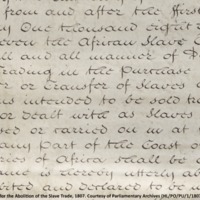
Heartbeat Riddim Chant
The dance-theatre production Heartbeat Riddim Chant was based on the horrors of the transatlantic slave trade. The production premiered at the West Yorkshire Playhouse in Leeds in July 2007, and mixed dance, live music and voice, including traditional Caribbean folk dancing blended with contemporary reggae. The show was choreographed by David Hamilton, and featured dancers from Regeyshun Dance and members of the community dance group Back Bone. There were also performances from youth dance groups and young voices from across Leeds, including LS7 Result, Northern School of Contemporary Dance, Gee4orce and Leeds Young Authors.
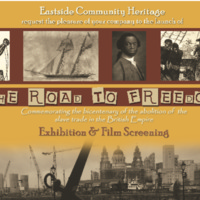
The Road to Freedom
Eastside Community Heritage worked with young people from West Ham and Stratford to explore the significance of the bicentenary within the context of their own history in London and in British history more widely. The Road to Freedom project was devised by the young people themselves, who gathered information from the Museum of London Docklands, the National Maritime Museum, the International Slavery Museum and the Birmingham Museum and Art Gallery. Their research led to a documentary-drama and an exhibition which toured venues in Newham, accompanied by discussion sessions led by the participants.
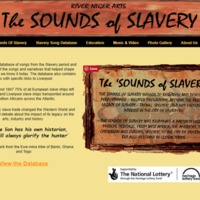
The Sounds of Slavery
The Sounds of Slavery was a project by the performance and visual arts group River Niger Arts to research, record and develop a performance-related programme around the musical heritage and legacy of slavery. The project took particular interest in these themes in relation to the City of Liverpool, but also addressed them in global terms. The project created a database of songs and narratives from the period of slavery. Members of the River Niger Orchestra also performed at a Sounds of Slavery performance at Liverpool Hope University. Some of the songs performed included 'The Chase', 'No More Auction Block' and the African American spiritual 'The Jubilee Song'. The project was accompanied by a series of performance and visual arts education workshops with schools.
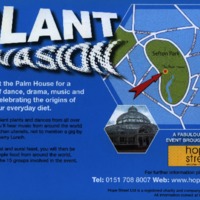
Plant Invasion
Plant Invasion was a family event of dance, drama, music and design, celebrating the diverse origins of food in everyday diets. The project looked at the origins of tea, and at the trade routes through Liverpool associated with sugar, coffee, tobacco, rice, cotton and enslaved peoples. The festival was organised by the Liverpool charity Hope Street Ltd, and took place at the Palm House in Liverpool's Sefton Park. Fifteen community groups prepared performances and displays based on their investigations into the journeys of non-indigenous plants and the routes they took in arriving in the UK.
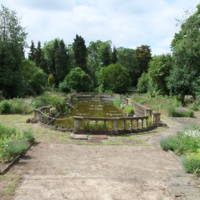
Liberation Song
Easton Lodge is a historic estate in Essex, with gardens open to the public. The Gardens of Easton Lodge Preservation Trust led two projects to mark the bicentenary. Liberation Song involved three local schools working with Grand Union Orchestra to explore the roots of musical instruments and styles, culminating in a community concert. A visual arts project involving seven local schools examined the history of Easton Lodge and trading links during the 18th century. Children decorated and displayed cotton reusable carrier bags and displayed them on yew hedges in the gardens. Connections were made with the story of the 18th century Ghanaian anti-slavery campaigner Ottobah Cugoano and the modern day Fair trade movement.
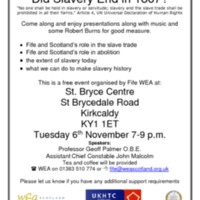
Did Slavery End in 1807?
An evening of presentations and music organised by Fife Workers' Educational Association, examining Fife and Scotland's role in the slave trade and abolition, and efforts to end contemporary slavery.
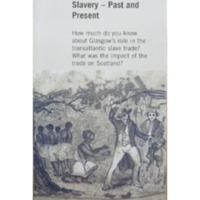
Towards Understanding Slavery: Past and Present
The Towards Understanding Slavery: Past and Present initiative by Glasgow City Council aimed to increase understanding of the human effects of the transatlantic slave trade, and explore its impact on Scotland's national heritage and Glasgow's history. A series of events, exhibitions and education programmes ran across the city throughout 2007. These included an exhibition of William Blake's works relating to the idea of slavery at the Burrell Collection, and a photographic exhibition by Graham Fagen, 'Downpresserer', at the Gallery of Modern Art, examining the cultural heritages of Scotland and Jamaica. There was a series of performances and talks at Kelvingrove Art Gallery and Museum, and events at the People's Palace and Winter Gardens focused on links between Glasgow's tobacco trade and slavery through the family portrait of the 'tobacco lord' John Glassford (there is said to be a figure of a young black man behind Glassford's chair that has been deliberately obscured or painted over). A year-long programme of lectures, schools events and exhibition highlighting the life of African communities in Glasgow took place at St Mungo Museum of Religious Life and Art.
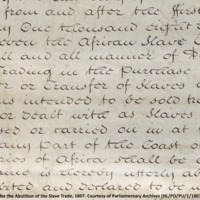
Remembering Slavery: A Musical Journey
Remembering Slavery: A Musical Journey was a performance at Luton's summer festival in July 2007. Young people told the story of slavery through music from Africa to the Caribbean to South America.
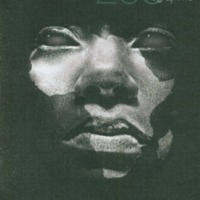
2007 Bicentenary for the Abolition of the Slave Trade Act at the National Maritime Museum
The National Maritime Museum marked the bicentenary with a range of initiatives and events including a new exhibition, a film season, poetry, music, debates, and new publications. A new permanent gallery opened at the museum in winter 2007 exploring Britain's Atlantic empire. A catalogue of slavery-related images, artefacts and documents from the collections of the museum, 'Representing Slavery', was published. The museum also devised a transatlantic slavery trail around Greenwich.
The National Maritime Museum hosted a number of events throughout 2007. The theme of the weekend 23-25 March was 'And still I rise', marked with a series of activities, performances and discussion. On August 23, International Day for the Remembrance of the Slave Trade and its Abolition, the ‘Freedom Festival: Contemporary Commemoration’ event saw a programme of creative events and performances exploring themes around the heritage of enslavement. The museum also offered a range of learning experiences based on its collections. For example, in November, a study session, 'Roots of Resistance: Abolition 1807' examined the roots of resistance and the abolition movement through talks by curators and contemporary artists. Activities for families were based on themes of freedom and carnival. 'The Big Conversation 2007' was a programme of debate and showcasing of diverse projects undertaken by students around the country, organised by the Understanding Slavery Initiative and the Department for Children, Schools and Families.
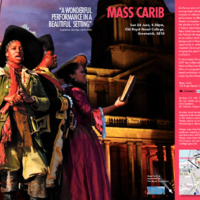
Mass Carib
Mass Carib is a choral performance piece written by Felix Cross. In 2007 it was performed outdoors at the Royal Naval College in Greenwich by Nitro Theatre Company, as a finale to the Greenwich and Docklands International Festival. To accompany the performance, the festival collaborated with the National Maritime Museum and Nitro on a programme of workshops in schools in Greenwich exploring the themes of the production. Mass Carib was written as a Requiem using the liturgical form of the Catholic Mass. It draws on music from West Africa, eighteenth-century Europe and various Caribbean islands. Mass Carib is sung in English, French, Patois, Latin and Yoruba.
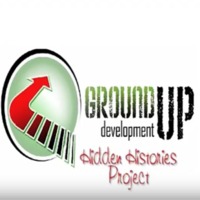
Hidden Histories
This project worked with young people from Lambeth, South London, to examine the history of West Africa, its peoples and their rich heritage, culture and traditions, as well as the impact of slavery and the African diaspora. Using film production, creative workshops, and visits to heritage sites, the emphasis was on the positive impact of African history and its effect on the aspirations and self-esteem of young people.
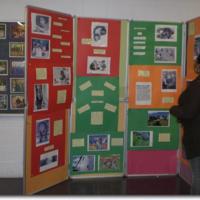
Commemorating 1807
A day of activities to mark the bicentenary was held in November 2007 at Forest Gate Youth Zone, a young people's drop-in centre in the London Borough of Newham. The day included an exhibition, workshops and performances.
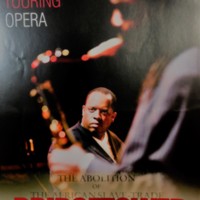
Bridgetower - A Fable of 1807
Bridgetower - A Fable of 1807 is a jazz opera composed by jazz pianist Julian Joseph, with libretto by author Mike Phillips. It was commissioned for the City of London Festival's bicentennial commemoration of the Abolition Act. The opera recreates the story of the Afro-European violinist George Polgreen Bridgetower (1778-1860), who was born into slavery, became a friend of Beethoven and was acclaimed throughout Europe for the standard of his playing. The opera was directed by Helen Eastman and toured by English Touring Opera. It opened during the 2007 City of London Festival at London Symphony Orchestra St Luke's, and later toured venues around the UK. Each performance featured a local community choir, with members drawn from local amateur choirs.
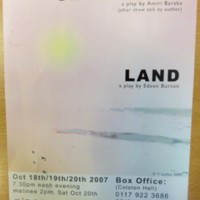
Slave Ship and Land
Two plays, Slave Ship by Amiri Baraka and Land by Edson Burton, were presented in Bristol by Say It Loud, a multicultural arts development organisation. Slave Ship was first performed in the United States in 1967. Land was written especially for the bicentenary project. In conjunction with the project, Say It Loud organised drama workshops on the subject of slavery in Bristol schools.
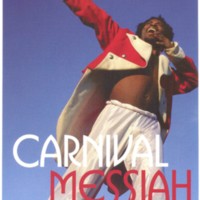
Carnival Messiah at Harewood
2007 saw a number of different projects taking place at Harewood House in West Yorkshire, home of the Lascelles family. The bicentenary was used as an opportunity to explore the family connections with the transatlantic slave trade and the sugar plantations of the West Indies.
To spotlight Harewood House's historic links with the Caribbean and carnival, in September 2007 a production of Carnival Messiah was held in a Big Top in the grounds. Carnival Messiah is a reinvention of George Frideric Handel’s oratorio Messiah as carnival theatre and heritage experience. The West Indian celebration features dancers, singers, masqueraders, musicians and actors. Stories from the Caribbean folk tradition, medieval mystery plays and African ritual combine with contemporary popular music and dance styles, including gospel, calypso, reggae, jazz, hop hop, bhangra and steel band. Geraldine Connor was Creator and Artistic Director and David Lascelles of Harewood House was Executive Producer. A community education and outreach programme ran alongside the project.
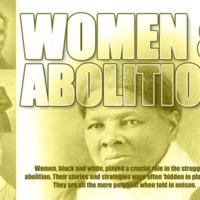
Women and Abolition
Women and Abolition was a collaborative project exploring the role of women in the abolition movement, led by CETTIE (Cultural Exchange Through Theatre in Education) and Yaa Asantewaa Arts and Community Centre. The event in March 2007 included a panel debate, presentations by women activists, poetry and performances of the theatre productions 'Sugar n Spice' and 'Splendid Mummer'.
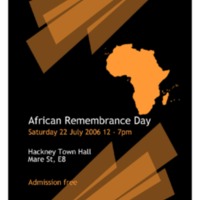
The Ligali organisation, 2007
Ligali is a Pan-African human rights organisation that challenges the misrepresentation of African people, culture and history in the British media. It produced various responses to promote the African perspective of the 2007 bicentenary, including their 'Declaration of Protest to the 2007 Commemoration' expressing dissatisfaction with much of the terminology and focus of the 'official' commemorations. Their particular focus was on the ‘Maafa’, derived from the Kiswahili word meaning ‘great disaster’, and referring to the ongoing impact of enslavement and colonialism for African peoples. The publication ‘Addressing Maafa denial and slavery apologists’ was a guide to promoting the truth about the Maafa from an Africentric position.
‘Maafa: Truth 2007’ is a documentary film directed by the Ligali founder, Toyin Agbetu, and produced by Ligali’s then head of media affairs, emma pierre. The film confronts some of the myths about British slavery, featuring contributions from community activists, project workers, teachers and the African British business community. The film was screened at various events, including African Remembrance Day at Hackney Town Hall in 2006. Ligali’s ‘Freedom Fighter’ stamps were designed by Emma Pierre-Joseph as a response to the Royal Mail’s publication of six stamps to mark the bicentenary. ‘The Walk’ is a documentary record of Toyin Agbetu’s protests at the service at Westminster Abbey to mark the bicentenary on 27 March 2007.